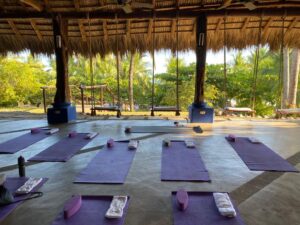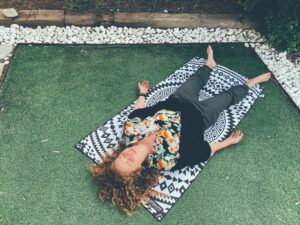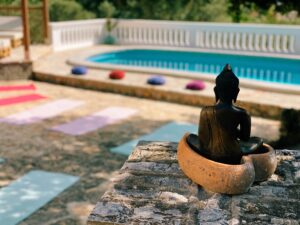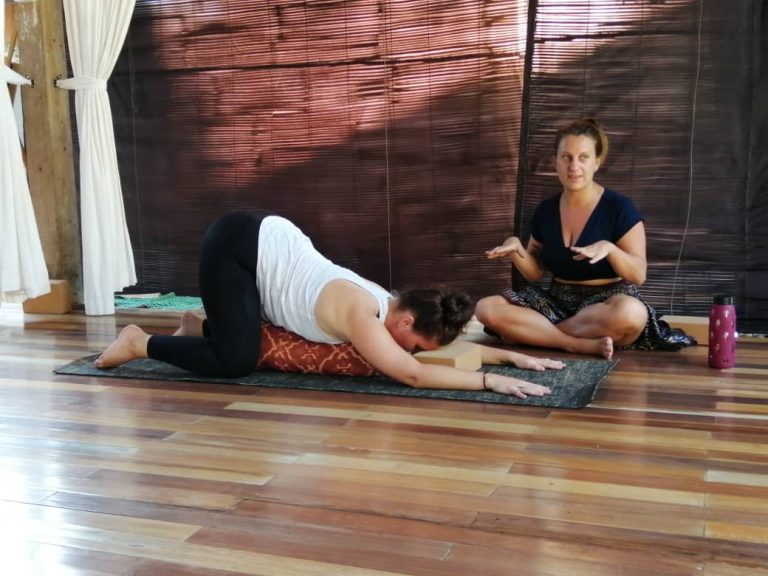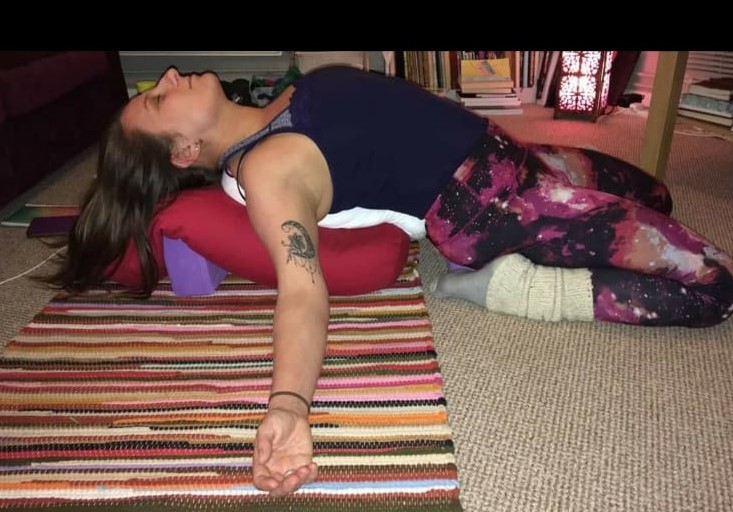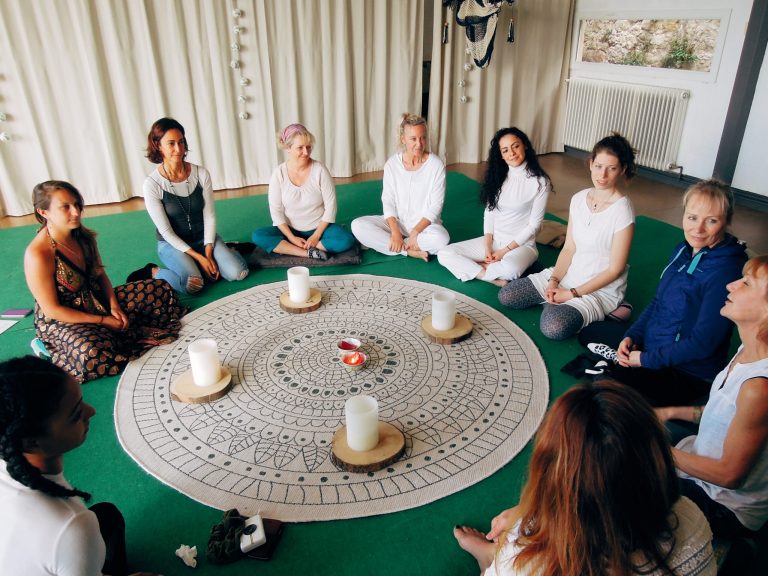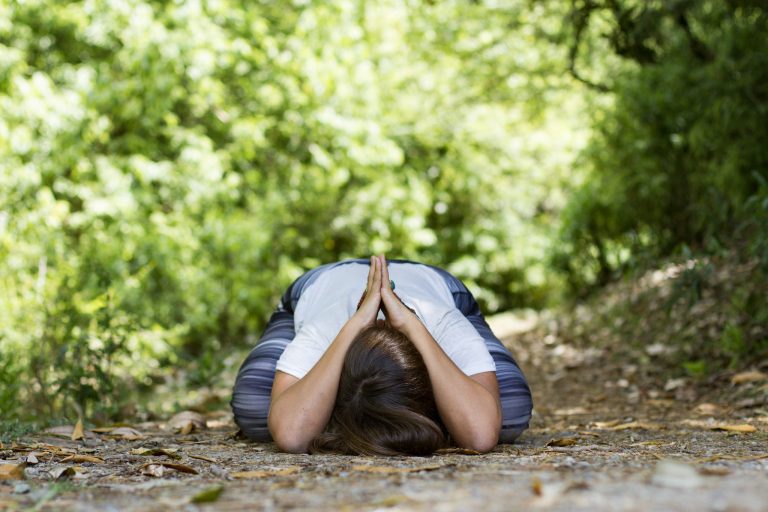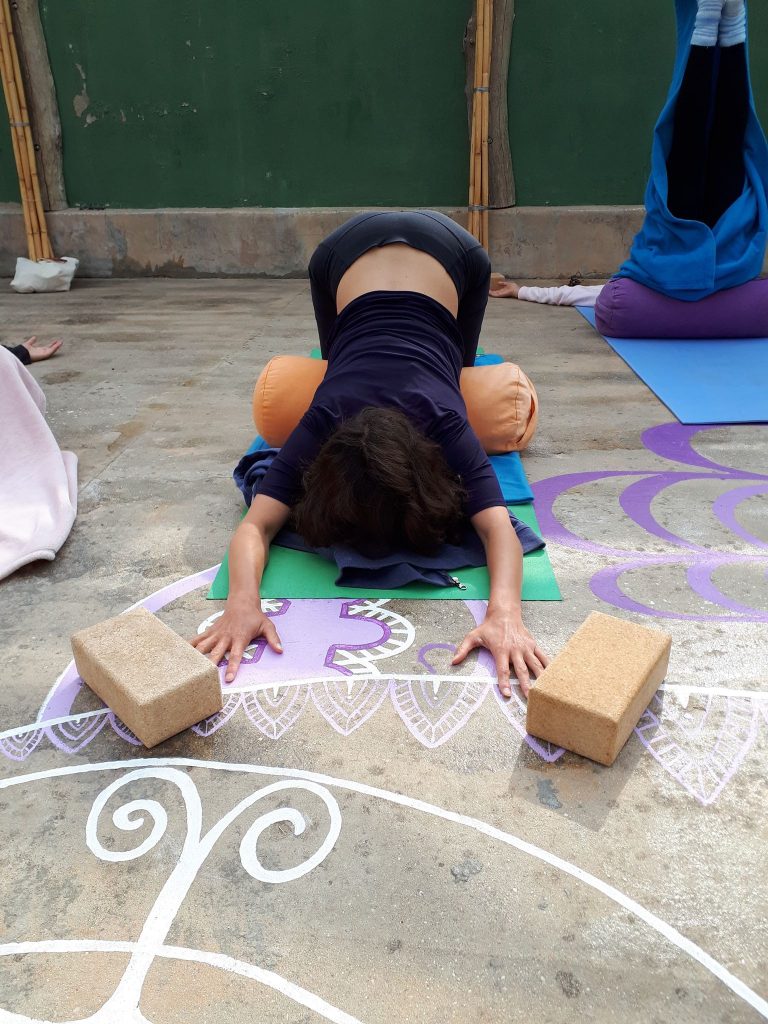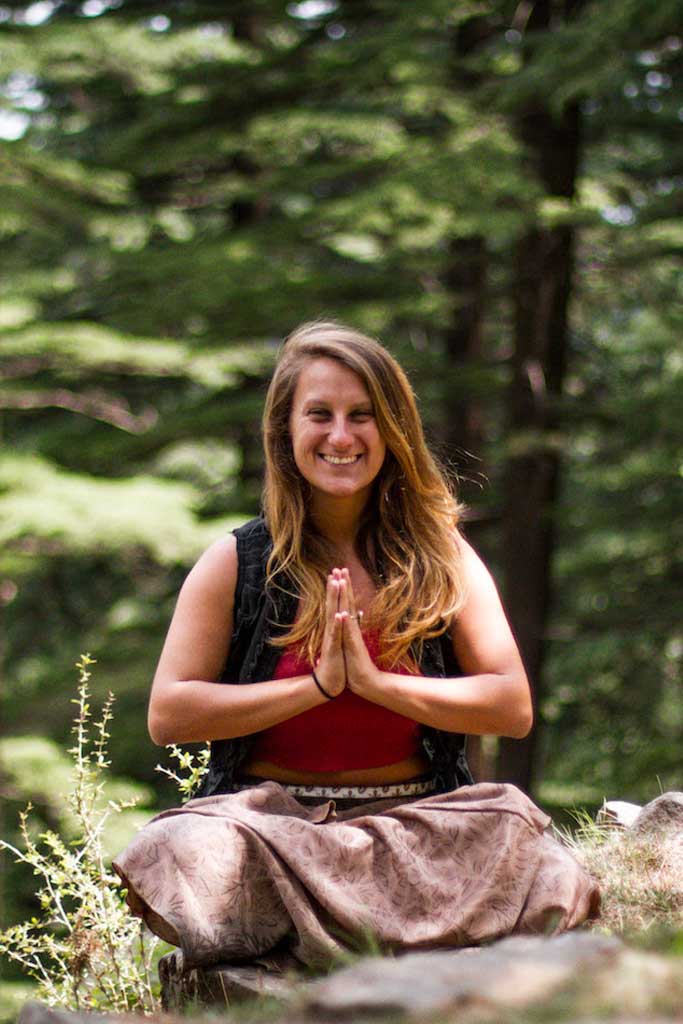Yin Yoga & The Rebound: Why Leaving It Out Costs You Healing
Written by Anna Caldwell
The Rebound is one of the most defining features of a Yin Yoga session and leaving it out robs the practitioner of some of the most profound and enjoyable benefits of the practice. The rebound is arguably the most important part of Yin Yoga, more so than any other asana or shape.
A rebound is the savasana or restorative posture between each pose where the body receives the benefits of the long holds, characteristic of the Yin style of Yoga. Not only does the body have a moment to assimilate the benefits, but the practitioner enters into deep states of relaxation, which is another essential component of the Yin Yoga practice. The rebound fills the space between each asana allowing for gentle transitions between poses. In comparison to Hatha styles of yoga, rebound transitions truly embody the concept of yin and what it means to slow down and pull back. Rather than move and glide, we stop moving completely and absorb ourselves into yin energy. Without the rebound, the practitioner is missing out on reaping the benefits in the emotional, mental, spiritual, energetic and physical dimensions of being.
One of the primary reasons people are attracted to this type of practice is a deep desire to slow down. We live in a yang, active, modern world in which many people do not have the time, space nor stillness to truly rest and check in with themselves. We live in a “do-more” type of world in which productivity is rewarded and rest is a guilty pleasure. Not only can we rewire this societal impression in the space of Yin Yoga, but we can finally take a break from our productivity conditioning and just be. All of this culminates in the stillness of the rebound. Without this paramount component of the practice, you are missing the true gifts of Yin Yoga.
One of the most common sensations reported during a Yin Yoga rebound is a slight buzzing or pulsating sensation that spreads throughout the body. Yin Yoga has its roots in Traditional Chinese Medicine and through this lens, we can understand that these sensations are the vital movement of Qi (energy) throughout the body. Qi is responsible for the movement of energy in and through all things, including bodily fluids. These sensations on both a physical and energetic layer is the rehydration of tissue, governed by Qi, as well as the actual movement of prana or Qi throughout the body. Yes, this is the space where the practitioner comes to understand on an experiential level just how closely the energetic and physical dimensions of Yin Yoga are linked.
Another key pillar of Yin Yoga is mindfulness and meditation, and the rebound provides the time and spaciousness for these practices. Without being consistently at our edge of comfort in the asana, we can pull back on the mental level and observe what is happening both physically within the body as well as in the mind. How did the asana land for us on this particular day? How was it challenging? How was my breath throughout the practice? Why was my back feeling this way today? Was I in pain and ignored it? These are all examples of some of the questions that may bubble up from within during this time. The rebound gifts us time to explore these questions. Without the space and time of the rebound, the practitioner may be robbed of the healing benefits of shedding awareness on our mental processes, patterns and conditioning.
If you are interested in learning more about training in Yin Yoga, Shanti Atma Yoga offers a variety of trainings exploring the many avenues to self-healing, teacher development and deepening your yoga practice:
Yin Yoga Teacher Training Online:
Yin Yoga Teacher Training: 100 hour Functional Anatomy and Chinese Medicine
Yin Yoga Teacher Training: 100 hour Pranayama, Meditation and Mindfulness
Yin Yoga Teacher Training: 80 hour Yin Yoga and Yoga Nidra
Yin Yoga Teacher Training: 50 hour Neuroplasticity and Mindfulness
Yin Yoga Teacher Training: 50 hour Essential Oils and Emotional Intelligence
Residential Yin Yoga Teacher Training:
Yin Yoga Teacher Training: 100 hour Functional Anatomy and Chinese Medicine
Yin Yoga Teacher Training: 100 hour Pranayama, Meditation and Mindfulness
Yin Yoga Teacher Training: 80 hour Yin Yoga and Yoga Nidra
Yin Yoga Teacher Training: 50 hour Neuroplasticity and Mindfulness
Yin Yoga Teacher Training: 50 hour Essential Oils and Emotional Intelligence
Yin Yoga Teacher Training: 200 hour 5 Bodies Approach
Locations:
Yin Yoga Teacher Training Bali
Yin Yoga Teacher Training Thailand
Yin Yoga Teacher Training India
Yin Yoga Teacher Training Spain
Yin Yoga Teacher Training Australia
Yin Yoga Teacher Training Guatemala

